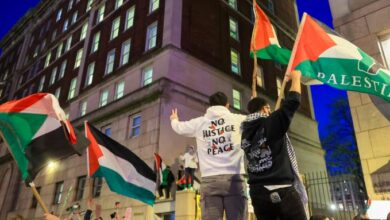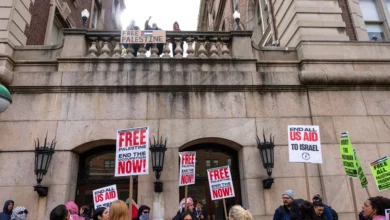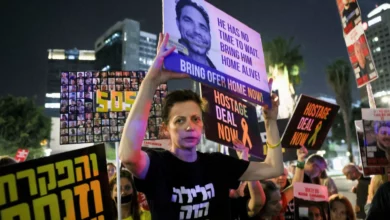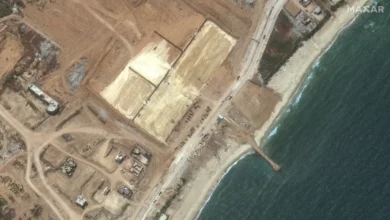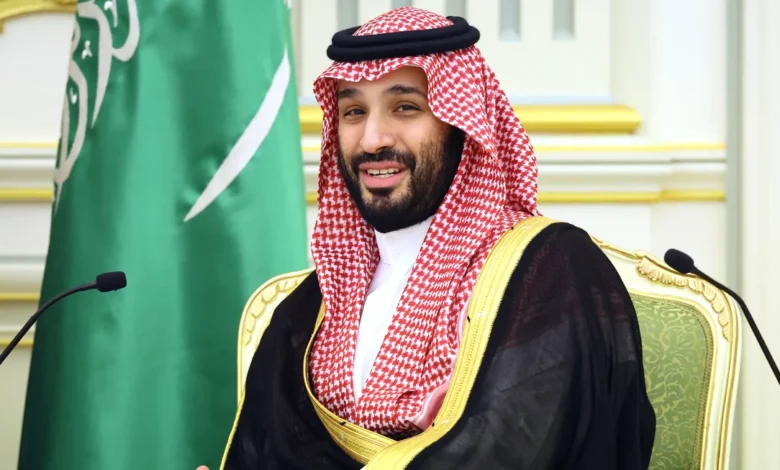
On another tour of shuttle diplomacy across the Middle East, including to Saudi Arabia and Israel, US Secretary of State Antony Blinken last week said that normalization talks continue to take place and “there is a clear interest in the region in pursuing that.”
“With regard to integration, to normalization, yes, we talked about that actually on every stop, including of course here in Saudi Arabia,” Blinken told reporters in Saudi Arabia before heading to Israel. “And I can tell you this: There’s a clear interest here in pursuing that,” he said. “This interest is there, it’s real, and it could be transformative.”
In an interview with the BBC on Tuesday, Saudi Arabia’s ambassador to the United Kingdom said “absolutely there’s interest” in normalizing relations. “There’s been interest since 1982,” Prince Khalid bin Bandar said.
But experts say the price that Saudi Arabia would demand in exchange for normalization would be higher now than before the Gaza war, as Riyadh may feel compelled to extract more concessions from the United States and Israel.
CNN has reached out to the Saudi foreign ministry for comment.
“The Saudi government is still open to normalization on condition that Israel takes concrete steps on the ground to create the foundations of a two-state solution,” Ali Shihabi, a Saudi author and analyst, told CNN. “That would be, for example, completely removing the blockade from Gaza, fully empowering the PA (Palestinian Authority) in Gaza and (the) West Bank, withdrawal from key areas in (the) West Bank etc.”
The steps, Shihabi said, must be “concrete and not empty promises that Israel could forget about after normalization like it did with other countries that normalized (with Israel).”
While Blinken did not call for a ceasefire in Gaza, he added that Israel’s further integration into the Middle East would require that “the conflict end in Gaza,” as well as the paving of a “practical pathway” to a Palestinian state.
The Palestinians seek an independent state in the occupied West Bank, East Jerusalem and Gaza. Most Muslim and Arab countries have refused to recognize Israel until such a state is established.
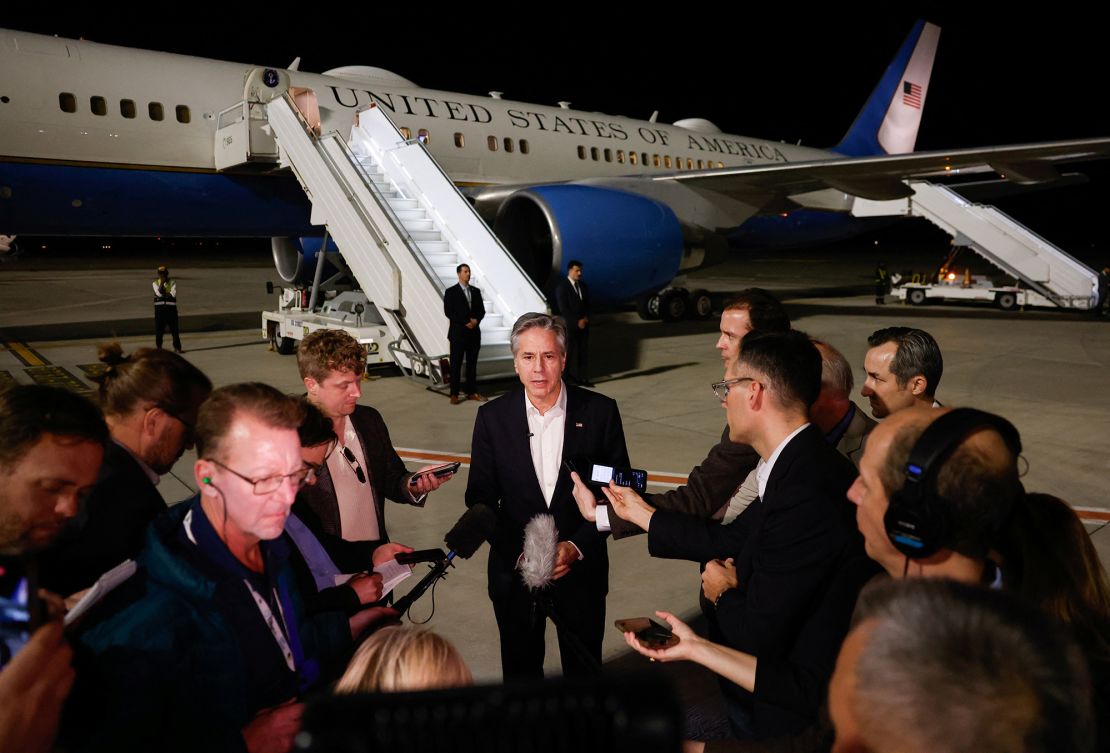
Israeli Prime Minister Benjamin Netanyahu and other Israeli officials have repeatedly shot down the prospect of a Palestinian state. Last month US President Joe Biden said the Israeli government “doesn’t want a two-state solution.”
In 2020, four Arab nations, the United Arab Emirates, Bahrain, Morocco and Sudan, recognized Israel under a set of treaties known as the Abraham Accords, sidestepping the longstanding Arab demand for a Palestinian state. Since then, the Biden administration has been working to bring Saudi Arabia, widely regarded as the leader of the Muslim world, to follow suit, a move that could have opened the door to other Muslim countries to recognize Israel.
Seen as one of the architects of the accords, UAE ambassador Yousef Al Otaiba at the time stressed the viability of the two-state solution, indicating that it was not being abandoned for the sake of normalization.
The treaty between the UAE and Israel “immediately stops annexation (of the West Bank) and the potential of violent escalation. It maintains the viability of a two-state solution as endorsed by the Arab League and international community,” Otaiba said.
While the establishment of a Palestinian state has been Riyadh’s official stance for two decades, the demand had been absent from official rhetoric in recent years, before the October 7 attack.
When asked about Saudi Arabia’s requirements for normalization with Israel, Saudi Crown Prince Mohammed bin Salman (MBS) in September told Fox News he hopes the deal will “reach a place that will ease the life of the Palestinians,” stopping short of calling for a state.
At the time, official rhetoric was centered on stronger US security guarantees for Saudi Arabia, as well as US help with the kingdom’s civilian nuclear program.
The October 7 attack on Israel and the devastating war in Gaza that followed prompted Saudi Arabia to pause normalization talks with an Israeli government despised in an Arab world that sees it as responsible for the suffering of Palestinians.
A poll conducted by the Washington Institute for Near East Policy, from November 14 to December 6, found that 96% of the 1,000 Saudis surveyed said they believed “Arab countries should immediately break all diplomatic, political, economic, and any other contacts with Israel, in protest against its military action in Gaza.”
Since the war, the US has suggested that sidestepping Palestinian rights, in order to integrate Israel in the region, may not be tenable. Blinken said on Tuesday that it is clear to him from conversations across the region that a normalization deal is “not in substitute for or at the expense of a political horizon for the Palestinians and ultimately a Palestinian state.”
Normalization talks seem once again to be prioritizing Palestinian rights.
“Given how inflamed Saudi public opinion is in light of the war in Gaza, Riyadh will now need much more meaningful Israeli concessions towards the Palestinians, possibly including the creation of a provisional Palestinian state,” said Firas Maksad, senior fellow and director of outreach at the Middle East Institute in Washington, DC.
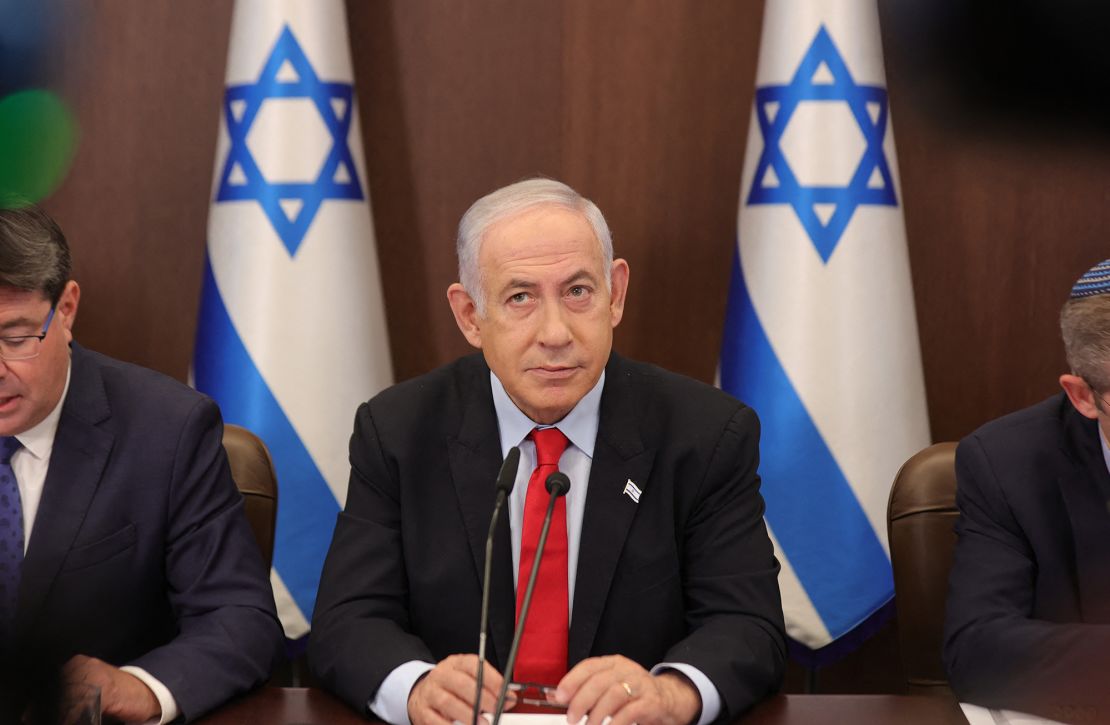
Israel’s war on Hamas has so far killed more than 23,000 in Gaza, according to the Hamas-controlled Ministry of Health in the enclave. Israel launched the war in response to Hamas’ October 7 attack, during which Palestinian militants killed 1,200 people and took more than 240 hostages, according to Israeli authorities. Israel believes 107 hostages seized that day are still being held in Gaza, along with the bodies of 25 who are dead.
“While we still, going forward even after October 7, believe in normalization, it does not come at the cost of the Palestinian people,” Prince Khalid, the Saudi ambassador, told the BBC, describing Palestinians as “the key element” in any normalization deal with Israel. “This is not a Saudi-Israeli peace plan, this is a Palestinian-Israeli peace plan.”
Asked whether Hamas would be part of any future Palestinian state, the ambassador did not rule out the prospect, saying it “requires a lot of thought, a lot of work… there is always room for change if you have optimism and hope.”
Riyadh is not in a hurry
Saudi Arabia can, however, afford to wait until conditions are right for a deal with Israel, Maksad told CNN.
Saudi-Israel normalization has become one of the main US policy objectives in the Middle East. Biden, who during his presidential campaign promised to turn Saudi Arabia into a “pariah” for the murder of Saudi journalist Jamal Khashoggi in Turkey, put his differences with MBS aside over the past two years as Riyadh signaled its willingness to embrace Israel.
For the Biden administration, brokering a normalization deal between Israel and Saudi Arabia would be a major foreign policy victory ahead of this year’s presidential elections.
“Congressional delegations, composed of both Democrats and Republicans, now visit this kingdom frequently, and relations with the Biden administration have rebounded after a bumpy start,” Maksad said, adding that until Saudi Arabia sees the change it wants, it has the luxury of time.
Riyadh is however wary of striking a deal with the current Israeli cabinet, the most right-wing government in Israel’s history, and one seen in the Arab world as responsible for the carnage in Gaza.
Prince Khalid described the current Israeli attitude as one that is “extreme,” “absolutist” and uncompromising.
“The problem is not the occupied land, occupied by settlers. It is that the settlers have now occupied the Israeli government, and by that I mean the extremist settlers, the extremist settler mentality which is absolutist,” Prince Khalid told the BBC, adding that the main obstacle to finding a resolution to the conflict is now Israel.
Already, there are some strains between Israel and the UAE, the main Arab party to the Abraham Accords. The Gulf state, which held the rotating United Nations Security Council presidency twice over the past two years, introduced a draft resolution that was critical of Israel in December. A significantly watered-down version eventually passed.

